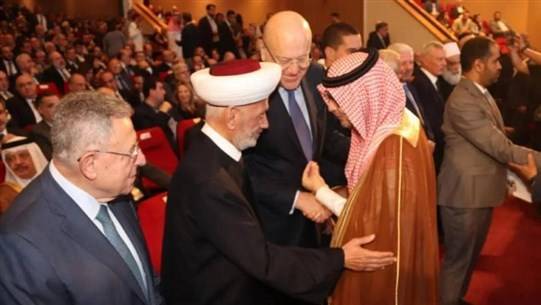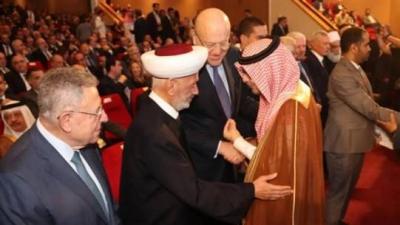The "Taif of Unesco" succeeded not just through the size and diversity of attendance and good organization, but also because the choice of political moment was a "masterstroke." With the onset of the presidential vacuum and amidst financial and economic collapse, thirty-three years after the "Taif Agreement" and its subsequent overturning following the assassination of Rene Mouawad, the document returns to be the only valid document for revisiting the straight state path and redrawing the boundaries of internal roles and regional ambitions. The conference is not undermined by the noticeable presence of some March 8 members in the front rows, nor by the nostalgia for wartime days among some of its makers, or by the incense carriers, as it achieved strategic goals that all serve the interests of those who desire stability for Lebanon, affirming its Arab identity and the establishment of the state and unity among its citizens.
It is significant that representatives of three major founding sects (Christians, Sunnis, and Druze) came together to emphasize the need to adhere to the National Accord Document at a time when supporters of former President Michel Aoun bet on a "constitutional chaos" that aligns with a hidden desire from his ally "Hezbollah" to challenge the fate of the political system, reinforcing the text in the constitutional document during times of strength and the glow of arms and practices of the status quo.
Saudi Arabia's ambassador decisively confirmed that Paris would not proceed with a new "Saint Cloud" conference project or encourage any amendments prior to the election of a new president, which should reflect on the context of the presidential elections. This awareness led those with blank votes and behind-the-scenes candidates to realize the futility of wasting time, just as President Nabih Berri understood that dialogue outside the parliament was a costly deviation for all Lebanese in the electoral process.
In terms of the current political facts, it is striking that speakers at Unesco unanimously agreed on the need to complete the implementation of the Taif provisions, considering the failure to do so as a cause of the imbalances. This perspective is both correct and incorrect at the same time. Even if all the beautiful texts were implemented, no one can guarantee how they would be applied in the context of a closed system where politicians, money sharks, and armed factions exchange benefits. The Lebanese experience with a constitution of gold that was seized by wicked pirates is bitter.
As those who destroyed the Taif Agreement remain in positions of power and decision-making, and their deaf supporting blocs continue to reproduce them, who will ensure that elections will not undermine the representation of women and minority ethnic and sectarian groups if political sectarianism is abolished in selecting parliament members? Who guarantees that the Prime Minister and President will not be intentionally undermined during constitutional deadlines if defined? Who can assure that the clientelism and nepotism will not be more horrific than what we have witnessed? And how will any reform provision be realized without addressing the disarmament of militias?
If the original Taif, which was guaranteed by Riyadh and the Arab League and supported by the United Nations, had been implemented, perhaps we would have been in better conditions and started development towards a secular democratic system that gives "Caesar his due and God what belongs to God." In any case, "Taif" remains the most suitable vessel to absorb contradictions and reforms if intentions are sincere and those who have turned against it return to the state project. This is the last opportunity, and it deserves a chance before entering the unknown realm of projects, proposals, and adventures.




